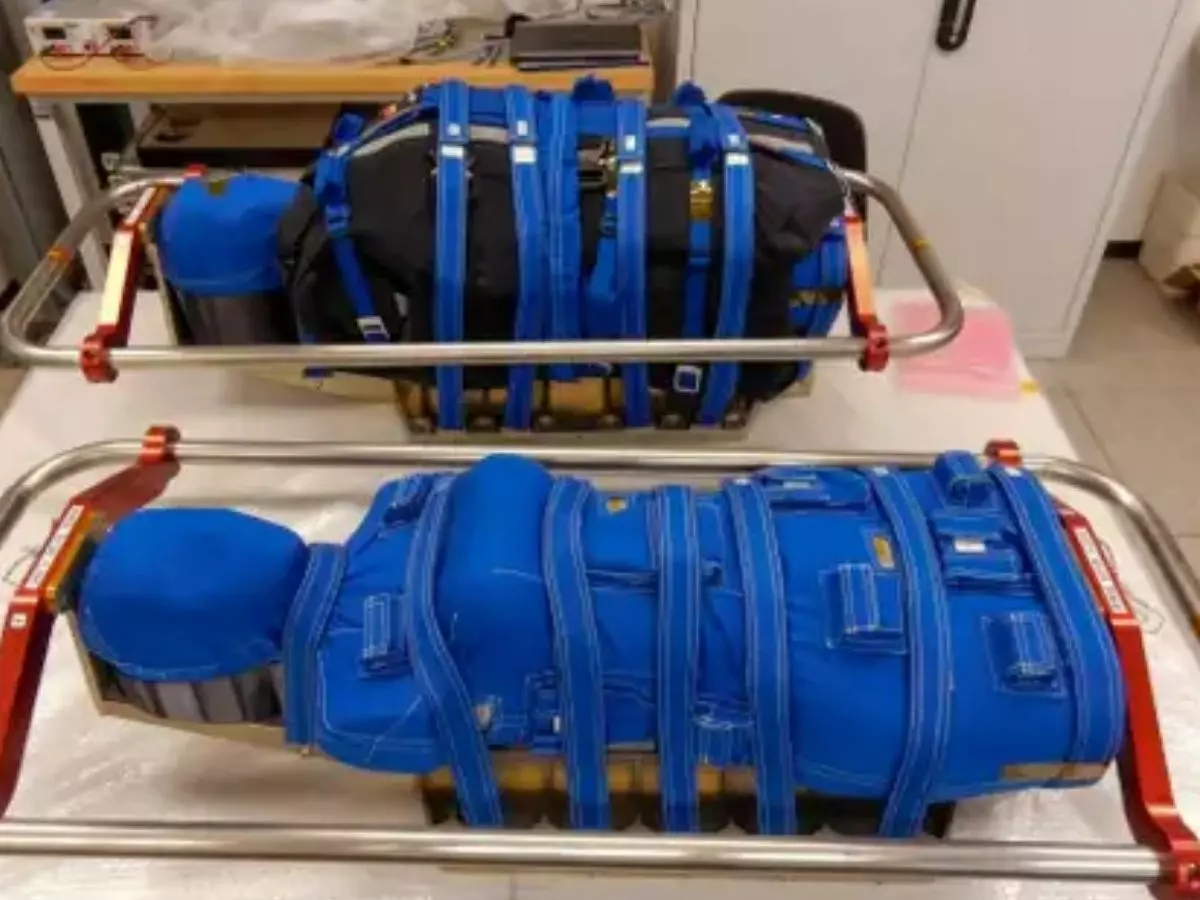NASA Will Send Artificial Female Bodies To The Moon To Study Radiation Effects
The mannequins are actually part of the MARE experiment designed by the German Aerospace Centre (DLR).

A pair of mannequins, modelled after the body of an adult woman -- Helga and Zohar -- are headed for a trip around the Moon to better understand radiation risks for female astronauts.
 NASA/DLR
NASA/DLR
Also Read: Your Name Can Fly To The Moon On NASA's Artemis-I Mission: Here¡¯s How
This is going to be a part of NASA¡¯s Artemis I mission in which an uncrewed Orion Capsule is expected to travel to the Moon and back. The mannequins are actually part of the MARE experiment designed by the German Aerospace Centre (DLR).
It involves the use of two identical representations of the female body to investigate the exposure of radiation throughout the flight of the Artemis 1 that would act as a foundation for Artemis 2 where an Orion capsule carrying real humans will fly to the Moon and back as early as 2024.
According to researchers, little to no research has been conducted on different radiation measurements for both sexes. And now, as NASA prepares to send female astronauts to the Moon it is also looking to reduce the effects of space radiation for its crews on this journey.
The mannequins are made from materials that simulate the bones, soft tissues and organs of an adult woman, all of which are tracked by over 10,000 passive sensors and 34 active radiation detectors, as per DLR¡¯s claims.
 NASA
NASA
Also Read: NASA Outlines Artemis Mission Phase 1: Plan To Send Humans To Moon And Beyond
Helga is expected to fly to the Moon unprotected whereas Zohar will wear a radiation protection vest dubbed AstroRad.
The two mannequins will be joined by a third one that will be responsible for collating data about the vibrations and G forces experienced by the other two mannequins.
They've already arrived at NASA¡¯s Kennedy Space Centre in Florida where they¡¯ll be loaded into the Orion spacecraft roughly four weeks before the scheduled launch. In the meanwhile, NASA is already working on its Space Launch System that¡¯s expected to launch sometime this summer.
Keep visiting Indiatimes.com for the latest science and technology news.
